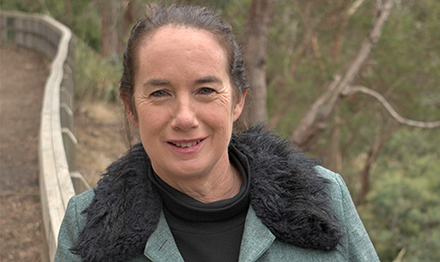The Australian Forest Products Association NSW wants the timber plantation regions of Oberon/Bathurst and Eden/Bombala included in the Emissions Reduction Fund. Source: Timberbiz
Southern Tasmania, Gippsland, the Victorian side of the Green Triangle and Kangaroo Island were added to the fund’s eligibility last week after the highly contested rainfall regulation, known as the ‘water rule’ was removed.
Timber Towns Victoria welcomed the decision by the Federal Government to reverse a regulation which prevented many plantations in Victoria from claiming carbon credits.
The regulation, known as the ‘water rule’, meant that plantations in areas which received more than 600ml of rain per year could not claim the carbon credits.
Under the rule areas below 600mm rainfall were eligible for a variety of carbon farming initiatives, as outlined in the federal governments Carbon Farming Initiative (CFI). Areas with above 600mm rainfall were only eligible for high biodiversity revegetation projects.
“AFPA NSW welcomes the Federal Government’s announcement which could see 100 million new trees in Victoria and Tasmania eligible for carbon offset payments under the ERF, and we urge the Government to remove this barrier for the remainder of NSW as soon as possible,” AFPA NSW CEO Sue Grau said.
“Earlier this year AFPA NSW strongly welcomed the Federal Government’s removal of these barriers for the state’s South West Slopes and North Coast forestry regions. We urge the Government to extend this measure to Central West and South-East NSW, so farmers and landholders can participate in the ERF and contribute to Australia’s climate change mitigation.”
Ms Grau said removing these barriers for the remaining NSW forestry regions would ensure a level playing field for all timber producing regions and unlocks potential for 60 million new trees.
“Growing our timber plantations will help NSW supply housing timber for future generations, support regional manufacturing jobs and meet its ambitious carbon emission reduction targets,” she said.
Timber Towns Victoria president and Glenelg Shire Deputy Mayor Cr Karen Stephens said that the baffling regulation had made Victoria’s prime plantations ineligible for carbon credits.
“The water rule made no sense and provided little incentive for the industry,” she said. “Timber Towns Victoria has long argued that trees are the ultimate renewable. This decision presents a significant opportunity for Australia to have low-cost carbon abatement with its timber production.”
The Federal Government’s decision would make it easier for plantation and farm forestry projects to generate carbon credits under the Emissions Reduction Fund and access the $2 billion Climate Solutions Fund.
“Now, 100 million more trees can be planted across Gippsland and Victoria’s Green Triangle and attain carbon credits. This is a win for the environment, local communities, jobs and for the economy,” Cr Stephens said.
“Timber is a critical resource that all Australians use every day. This decision gives the industry and Victorian communities the confidence to grow the most renewable and sustainable natural product we have.”
Timber Towns Victoria has previously called on the State Government to reconsider its plan to shut down the State’s native timber industry by 2030.






